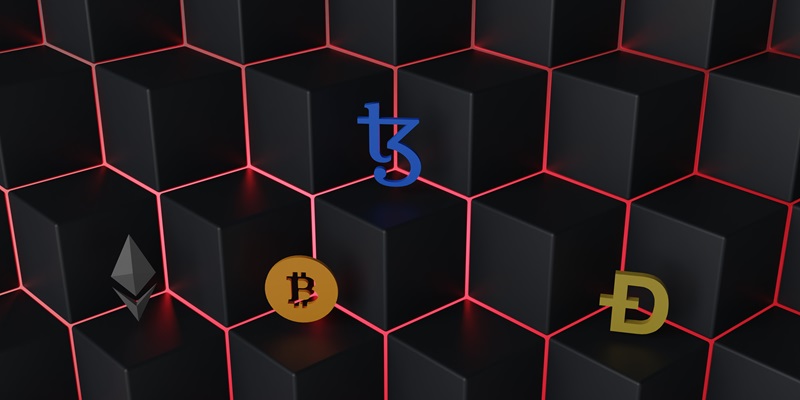Blockchain technology has emerged as a game-changer in various industries, promising increased fairness and transparency. By leveraging decentralized networks and cryptographic algorithms, this revolutionary technology has the potential to transform the way institutions, organizations, and governments operate. Real-world applications of blockchain are already making their mark, improving operational systems and creating new opportunities for efficiency and trust.
Real-world examples of blockchain applications
From large financial institutions to small startups, real-world examples are showcasing the transformative power of blockchain technology. Governments are exploring its potential for secure identity management, voting systems, and property rights verification. Organizations are leveraging blockchain for supply chain management, ensuring transparency and reducing fraud. The healthcare industry is adopting blockchain to securely store and access medical records, enabling authorized parties to access critical information efficiently.
Money Transfers: A Common Blockchain Application
One of the most widely used blockchain applications is the seamless transfer of money. Traditional cross-border transactions are often slow and expensive due to the involvement of intermediaries. Blockchain technology eliminates the need for intermediaries, allowing for peer-to-peer transfers with faster processing times and reduced fees. This application is gaining popularity, especially in remittances and international transactions, as it offers significant cost and time savings.
Smart Contracts: Enhancing Accountability and Reducing Human Error
Smart contracts, self-executing agreements encoded on a blockchain, greatly enhance efficiency and transparency. By automating processes and eliminating the need for intermediaries, smart contracts reduce the margin for human error. All parties involved in a transaction can trust that the terms will be executed exactly as programmed. This added layer of accountability mitigates the potential for fraud, disputes, and delays, making transactions more secure and efficient.
Personal Identity Security: Safeguarding Information with Blockchain
Traditional identity management systems are vulnerable to hacks and data breaches. Blockchain technology provides a solution by securely storing encrypted user information across a decentralized network. Individuals can control access to their personal data, allowing only authorized entities to view specific information. This increased security in personal identity management has far-reaching implications for sectors such as finance, healthcare, and even voting systems.
Storing Medical Records: Improving Access and Security
The storage and sharing of medical records are critical for providing quality healthcare services. Blockchain offers a decentralized and tamper-proof solution, ensuring that patient records are easily accessible to authorized healthcare providers. Blockchain-based systems provide a comprehensive audit trail, eliminating the risk of data manipulation or loss. This innovation not only streamlines medical record management but also enhances patient privacy and data security.
Supply Chain Efficiency: Tracking Goods with Blockchain
Efficient supply chain management is vital for businesses to maintain transparency and trust. Blockchain technology can revolutionize this process by enabling real-time tracking and verification of goods. With blockchain, each transaction and movement within the supply chain is securely recorded, allowing stakeholders to track the origin, journey, and condition of products. This transparency builds trust among suppliers, manufacturers, retailers, and consumers, reducing counterfeit products and ensuring ethical practices.
Secure IoT Networks: Decentralized Communication without a Central Authority
The Internet of Things (IoT) offers great potential for interconnected devices and systems. However, it also raises concerns over security and privacy. Blockchain technology can provide a secure network infrastructure for IoT devices to communicate directly with each other, eliminating the need for a central authority. By enabling peer-to-peer interactions and ensuring data integrity, blockchain protects against unauthorized access, manipulation, and breaches of connected devices.
Non-Fungible Tokens (NFTs): A Popular Blockchain Application
Non-fungible tokens (NFTs) have gained immense popularity in recent years. These digital assets, represented on a blockchain, can represent ownership of unique items such as art, collectibles, or virtual real estate. NFTs provide provenance, verifiable authenticity, and individual ownership rights, revolutionizing the concept of digital ownership and creator royalties. This application has created new opportunities for artists, collectors, and enthusiasts, unlocking the value of digital assets like never before.
Blockchain technology is at the forefront of transforming industries with its inherent fairness and transparency. From streamlining financial transactions, enhancing accountability with smart contracts, and securing personal identities, to improving healthcare systems, optimizing supply chains, and empowering IoT networks, blockchain offers immense benefits across various sectors. Its ability to increase security and transparency makes it a powerful tool in combating fraud, inefficiencies, and data breaches. Whether it be in finance, healthcare, logistics, or digital assets, adopting blockchain technology is a step towards a more equitable and transparent future for all industries.

